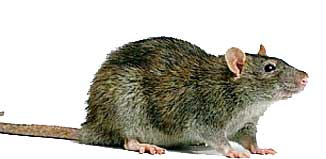 As the weather gets colder, mice and rats start seeking shelter in warm locations like our houses. The start of winter means an increase in mouse and rat poisoning. As the use of these poisons increases so does the accidental poisoning of our pets from eating baits. Secondary poisoning, from eating poisoned rats or mice is not very common, but may occur with some types of bait.
As the weather gets colder, mice and rats start seeking shelter in warm locations like our houses. The start of winter means an increase in mouse and rat poisoning. As the use of these poisons increases so does the accidental poisoning of our pets from eating baits. Secondary poisoning, from eating poisoned rats or mice is not very common, but may occur with some types of bait.
Most rat baits available to the public contain anticoagulants. These work by preventing clotting of the blood. Symptoms often do not appear until several days after eating as it takes some time for the clotting factors to be depleted.
Signs of poisoning are variable and are caused by internal bleeding. These include:
- Lethargy, depression
- Loss of appetite
- Pale gums
- Coughing or difficulty breathing
- Blood in stool or urine
- Vomiting
- Bleeding from nose or gums
If you suspect your pet has eaten rat bait but is not yet showing signs, it is important to bring them into the clinic immediately. If you know what brand of rat bait it is, inform the vet and if possible, bring the box with you to the clinic.
Unfortunately, rat bait is often ingested without the owner’s knowledge and an untreated animal can potentially die from blood loss.
Treatment is based on the presentation of the animal and the severity of the signs. If your pet has ingested the poison within the previous hour, the vet will give your animal something to make them vomit. Blood tests will be required, and most animals will need to go on a course of Vitamin K, the antidote to the poisons. Some animals will require hospitalisation. If an animal presented to the clinic has already lost a large amount of blood, they may require a blood transfusion.
If you know or suspect your pet has eaten rat bait or is showing any of the signs, please contact your veterinarian immediately.

